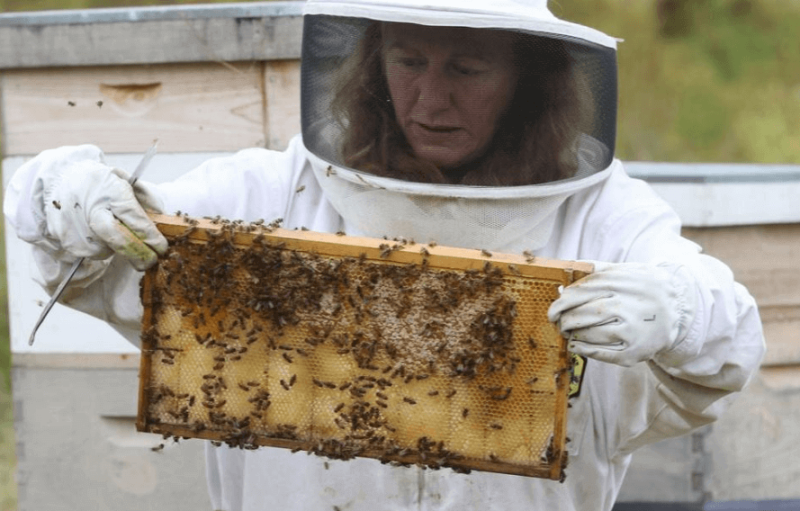A type of pesticide many beekeepers blame for mass bee die-offs would come under tighter regulation under a bill filed in the Massachusetts legislature in January [2017].
…
Over the past decade, pesticides containing a classification of chemicals called neonicotinoids have come under mounting suspicion by beekeepers, who have reported high death rates among their honeybees.
[The] bill, which has 134 co-sponsors, would bar anyone who hasn’t completed a state training and certification program from applying neonicotinoid pesticides. It would also be illegal to apply the pesticides during blooming season. Stores and garden centers selling plants pre-treated with the pesticides would be required to clearly label them.Maryland and Connecticut recently enacted similar restrictions on the pesticides, and the European Union put a moratorium on their use in 2013.
….
Brad Mitchell, director of government affairs for the Massachusetts Farm Bureau Federation and a former toxicology expert for the Massachusetts Toxicology Board, believes states like Massachusetts should wait for the federal Environmental Protection Agency to further study the matter and issue guidance before enacting neonicotinoid restrictions or bans.
Mitchell said many studies have been flawed. He doesn’t believe the science supports that neonicotinoids are the primary cause of large-scale bee die-offs. Parasitic mites, diseases, and poor bee husbandry, he argues, could be more significant factors.
The GLP aggregated and excerpted this blog/article to reflect the diversity of news, opinion, and analysis. Read full, original post: Lawmakers considering pesticide restrictions to limit bee die-offs































